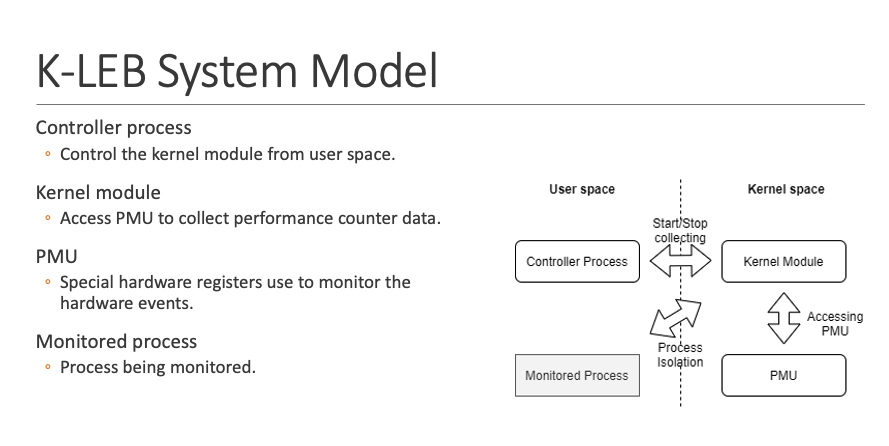Chutitep Woralert, a Ph.D. student in the electrical and computer engineering department at Clarkson University, along with his advisor, Dr. Chen Liu, an associate professor of electrical and computer engineering, presented their recently published paper titled “High Frequency Performance Monitoring via Architectural Event Measurement” at 2020 IEEE International Symposium on Workload Characterization (IISWC 2020) held virtually October 27-29.

The International Symposium on Workload Characterization (IISWC) is a top-tier conference on workload characterization research with a long and successful history. IISWC serves as a top-notch technical forum for the presentation of new and exciting advances in the understanding of emerging computer applications and workloads. The conference is often used as the primary venue for interaction between academic and industrial researchers and designers.
Liu and Woralert’s paper says obtaining detailed software execution information using low-level hardware information is a powerful analysis technique, as this information provides an effective method to monitor software program behaviors; hence performance bottlenecks due to hardware architecture or software design and implementation can be identified, isolated and improved on. The granularity and overhead of the monitoring mechanism, however, are paramount to proper analysis. Many prior designs have been able to provide software program monitoring with inherited drawbacks such as intrusive code changes, a slow timer system, or the need for a kernel patch.
Liu and Woralert’s paper presented K-LEB (Kernel – Lineage of Event Behavior), a new monitoring mechanism that can produce precise, non-intrusive, low overhead, periodic performance counter data using a kernel module-based design. Their proposed approach has been evaluated in three different case studies to demonstrate its effectiveness, correctness, and efficiency. By moving the responsibility of timing to kernel space, K-LEB can gather periodic data at a 100μs rate, which is 100X faster than other comparable monitoring approaches. At the same time, it reduces the monitoring overhead by at least 58.8%, and the HPC (High Performance Computing) count difference with other tools are less than 0.3%.
Woralert’s research is supported by the Nicklas-Ignite Research Fellowship. The coauthors of the paper include James Burska ‘18, (Computer Engineering, and Honors program) and Dr. Lok Yan from the Air Force Research Lab.
